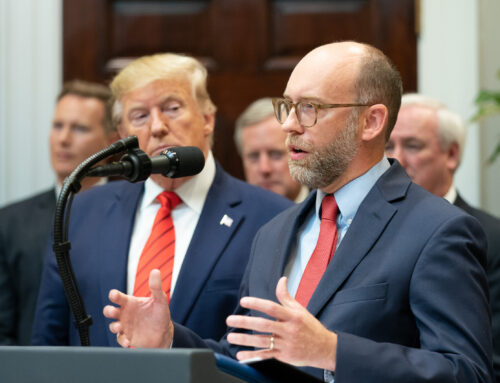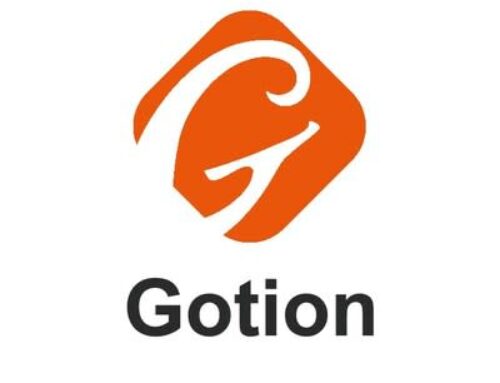Meta Is Recruiting Former Pentagon Officials As It Ramps Up Military Ambitions
May 7, 2025
Meta is courting national security and former Pentagon officials to help sell its virtual reality and AI services to the federal government, Forbes has learned. Multiple former government officials said they were aware of the recruiting efforts.
Meta, which recently opened up its Llama AI model for military use, has long maintained lobbyists in D.C., but almost half a dozen current open roles indicate it is bolstering its efforts to secure lucrative government contracts. The company is seeking two public policy managers, including one to focus on the White House — preferably with a security clearance and previous Pentagon work — to “lead our outreach to national security and foreign policy agencies within the Executive Branch of the U.S. government on both policy issues and adoption of our technologies.”
In January, Meta hired Francis Brennan, a former Trump advisor, to lead strategic communications out of D.C. Another recent hire, who according to their Linkedin worked for an undisclosed federal government agency for more than a decade, posted about joining Meta to focus on its “intelligence sharing” with the government. “Whether it’s protecting national security or strengthening the platforms that billions rely on, I’m grateful for the opportunities that allow me to give back,” the employee posted on LinkedIn in December.
Meta declined to comment.
The move comes amid CEO Mark Zuckerberg’s ongoing charm offensive to win over the Trump administration, looking for leniency as Meta fights a federal antitrust lawsuit aiming to break it up. After donating $1 million to Trump’s inauguration committee, Zuckerberg announced Facebook was ending its third-party fact checking program — a longtime target of conservatives who claimed Facebook’s moderators unfairly penalized them. He abolished the company’s diversity team, appointed UFC chief and Trump ally Dana White to Meta’s board, and elevated longtime Republican lobbyist Joel Kaplan to chief of global affairs.
President Donald Trump once said Zuckerberg “should be jailed for life,” but appears to have warmed up to the tech leader; they met at Mar-a-Lago in November and the tech chief attended Trump’s inauguration. Zuckerberg recently bought a $23 million home in D.C.
Got a tip? Contact David Jeans at djeans@forbes.com or 347-559-5443 on Signal.
Meta has not yet announced any direct contracts with the Pentagon or national security agencies, but it’s clear that like Google and OpenAI, the social media giant sees vast commercial upside in building a government business. (It has some previous federal contracts for advertising and marketing social media posts, according to procurement records.) “Meta is seeing every other big tech firm and reading the tea leaves, seeing that maybe the expected windfall from civilian use of AI is not going to appear,” said Shana Marshall, who focuses on international affairs at George Washington University. “If you are looking for a money spigot that’s never going to get turned off, you go to the Pentagon.”
Meta’s main business has always been online advertising. But current job postings hint at the areas it’s targeting. Its virtual reality business Reality Labs is seeking someone with more than a decade of experience working for a federal contractor to “help drive new partner relationships in the U.S. Government” to sell its emerging technology. (The Pentagon has discussed using virtual reality for combat training since 2019.) Other roles include a marketing head to help the company boost awareness of its open-source AI model Llama with “developers across the ecosystem, including startups and governments.”
Meta, which announced in November that it would allow Llama to be used by the military and national security agencies, said it had been working with Palantir and Scale AI along with defense contractors Leidos, Lockheed Martin, and Booz Allen, the latter of which is using Llama to replace paper documents on the International Space Station. “It is in both America and the wider democratic world’s interest for American open source models to excel and succeed over models from China and elsewhere,” the company said at the time.
For years, big tech companies were reluctant to allow their AI technologies to be used by the military, fueled by concerns from outside critics and their own employees that AI could be used to make fatal decisions on the battlefield. But as other Silicon Valley software companies like Palantir and Scale AI secured hundreds of millions in government contracts, big AI companies have recently jumped back on the national security train to support the U.S. military.
Google, which in 2016 abandoned a U.S. Air Force contract to label drone footage data using AI — known as Project Maven — updated its user policy in February to allow AI to be used for military use. (When Human Rights Watch and other groups raised concerns, Google defended the change, stating that companies and governments “should work together to create AI that protects people, promotes global growth and supports national security.”)
OpenAI, which quietly dropped a ban on military use of its software last year, recently announced a contract with the U.S. Air Force and a partnership with military contractor Anduril to “ensure that the U.S. Department of Defense and Intelligence Community have access to the most advanced, effective, and safe AI-driven technologies available in the world.” This came a month after AI competitor Anthropic said it would allow its technology to be used by the U.S. military through an agreement with Amazon and Palantir.
Last week, Zuckerberg said on a podcast that working with Trump is “necessary.” “Our default as an American company should be to try to have a productive relationship with whoever is running the government,” he said.
Follow me on Twitter or LinkedIn. Check out some of my other work. Send me a secure tip.
Search
RECENT PRESS RELEASES
Related Post



